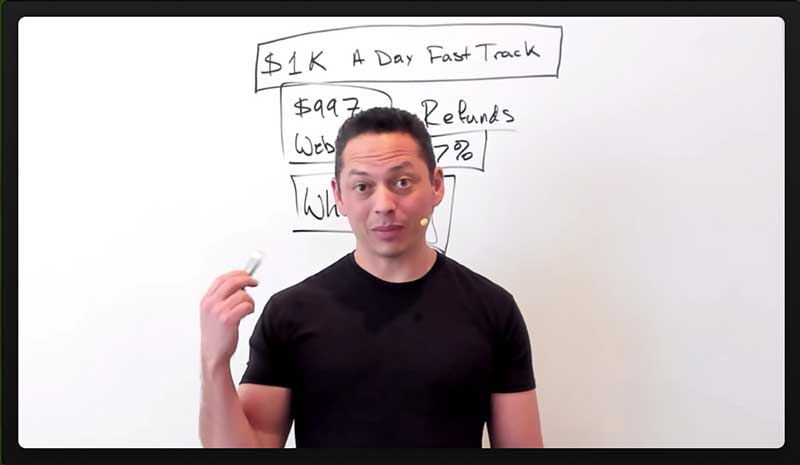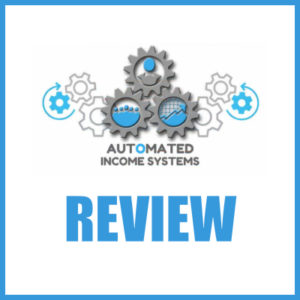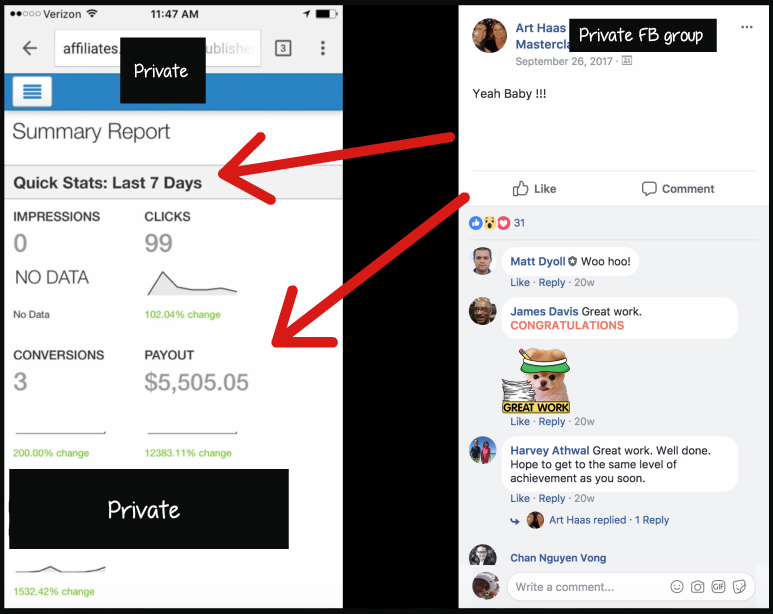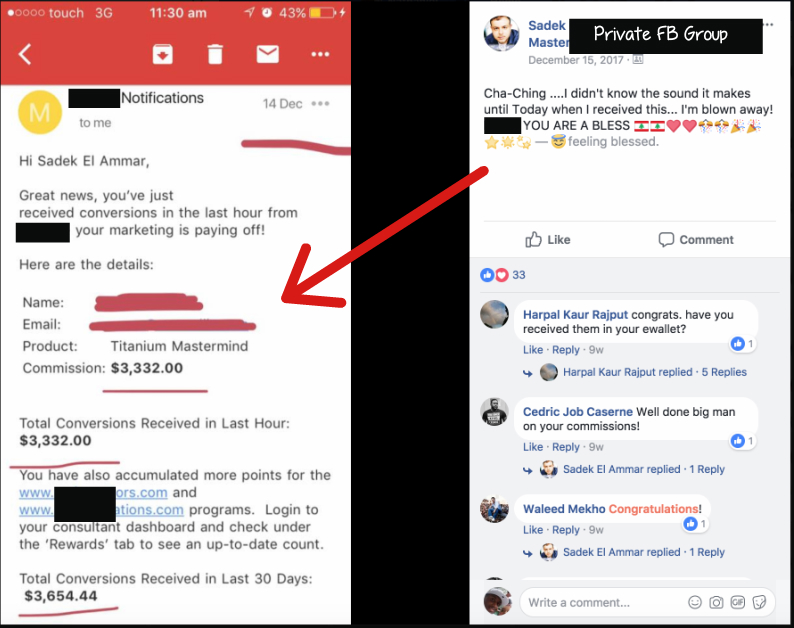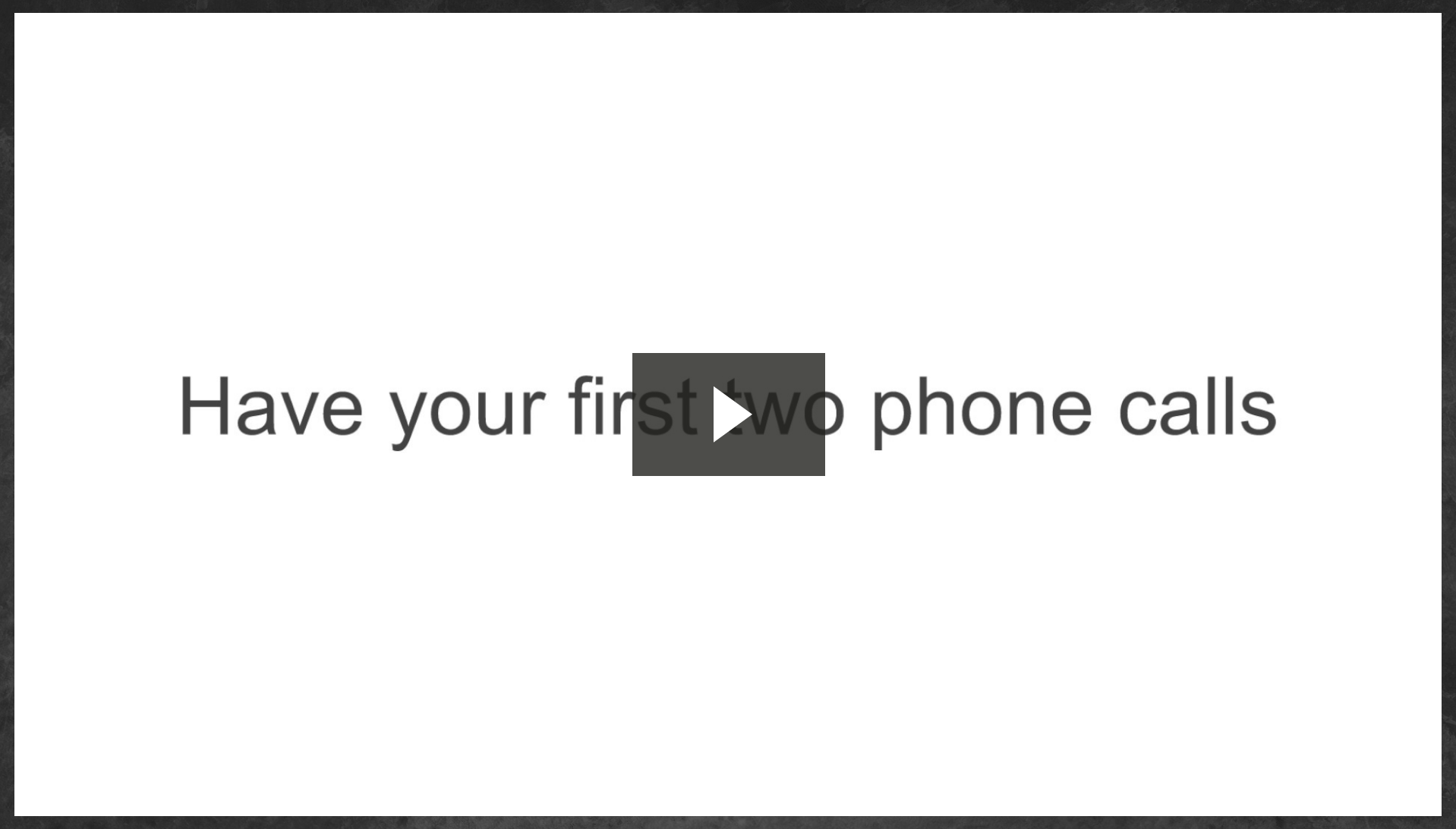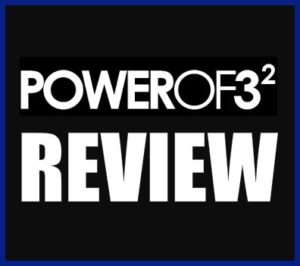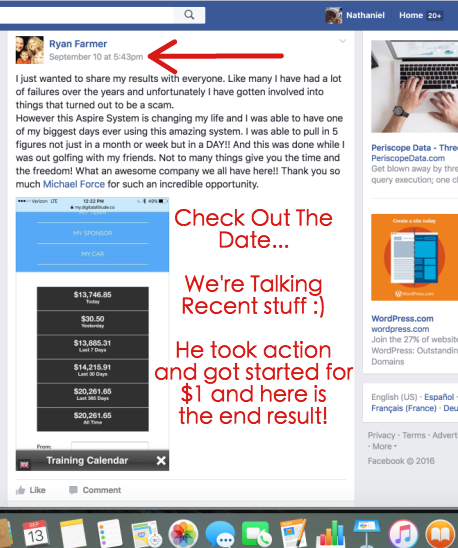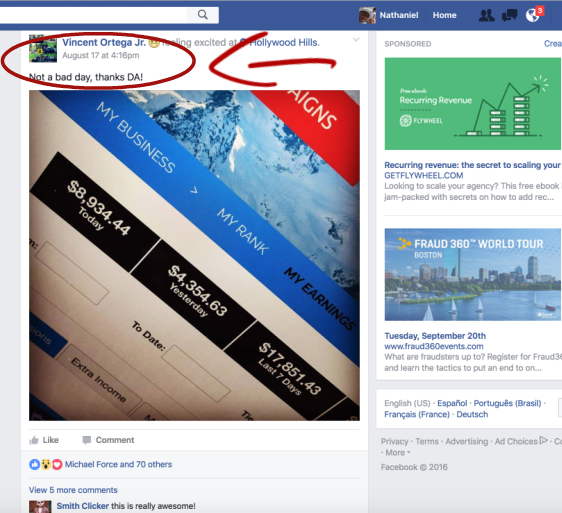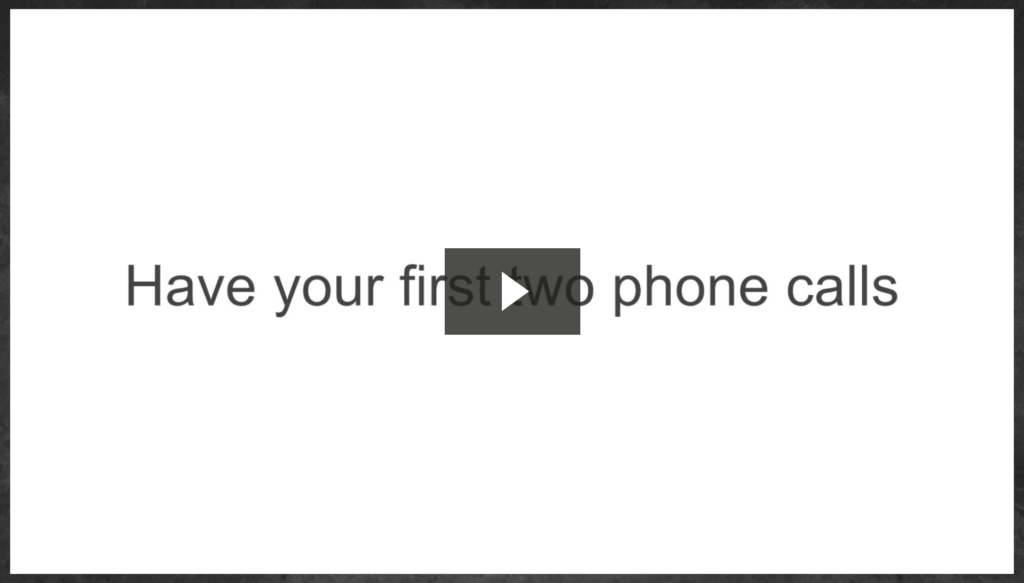When I transitioned into affiliate marketing, and starting an online business, things took a lot longer than I originally expected. I thought, “I would put up this page and everyone was going to sign up for my free gift and I would be building this email list and everyone would want to buy it from me. It’s going to be easy,” but it’s not quite the way it happened. I remember having a moment of complete frustration, thinking that the numbers that I would set for myself, my goals, I was nowhere near them. I was looking at one page of a piece of paper of what I did and what I had set out to do.
They were not even close. Being driven and ambitious, it was a hard pill to swallow. How could I have done something like build up a career and here I’m not doing so well? I remember having a moment like, “Maybe this isn’t meant for me. Maybe I should just give up. Maybe I should quit. Maybe I should stop.” When I looked at what I was missing instead of looking outside of myself from all those, what made the difference, and what allowed me to create more success in my corporate career, I realized it was about building relationships and connections with people.
Online at the time, it felt cool to me. I would send an email. I would obsessively hit refresh. I was like, “Did they open it? Who’s looking? Is anyone paying attention?” I was a little bit obsessed with my stats. It’s like, “People like people, they are numbers,” and it felt cold. I was like, “Who’s on the other side of this?” I didn’t know. I would gradually grow my email list, like one-sies and two-sies at a time. Neither was a better way.
I thought, “How can I create a deeper connection with my people in a place where it’s leveraged, where I get to do this online?” That’s when I started my first free Facebook Group. I went from struggling to try and hit my first five-figure month. I was getting close, getting there but still falling short of opening up my Facebook Group.
I hit $27,000 a month and I was like, “What just happened?” I realized I was absolutely onto something. Before long, people started asking me, “What are you doing? How are you doing that your group is growing? It’s so engaging. You seem to be doing well and enrolling clients. How are you doing that?” I’m like, “I don’t know. Let’s put this together and systematize what I was doing.” I started sharing with other people what I learned along the way.
People hear the word systems and think that systems have to be complicated but it’s breaking down a lot of times what you are already doing so that someone else can follow.
I love this because no one wakes up one day and says, “Guess what? I have come up with this formula. I have come up with this system. I’ve got it all figured out. Now everything is solved.” This is not how it happens. What happens is you do something and it starts working, then you start to realize like, “What did I do?” We don’t even realize what comes naturally to us and the things that we learn because we assume everyone thinks or operates the way that we do. That’s simply not the case at all. It’s more we go back to after and realize how we put it together.
A community is all about having a safe place where people have the opportunity to have a voice and share and ask questions, too.
For you, your Facebook Group became that catalyst. It made all the difference for you. What’s the unique benefit that a Facebook Group brings to the table that you don’t necessarily get from other social platforms?
I would say a Facebook Group is the only effective community-based platform that’s out there. No matter which social platform you are looking at like if you are looking at Instagram, it means Instagram people love it. It’s hot. To be effective on Instagram, you are spending a lot of time doing Stories. You are doing a lot of DMs. It’s a lot of time.
Anything that you are posting disappears. Your Stories disappear after 24 hours. It’s more of a reactionary-based platform. Same with Facebook, even on your business page, it’s more of like a billboard, that business card or the teaser, the window dressing of people wanting to learn more about you making the invitations to come in.
Whereas your Facebook Group is like, “Come on inside. Let’s hang out in my digital living room. Let’s get to know each other. It’s a two-way conversation,” which is leveraged, by the way. If you are having a conversation with someone in your Facebook Group and you are going back and forth in the comments, guess who’s watching? The entire group has the ability to be able to see what’s going on.
They may not be the one that’s getting supported, coached or talked to but they can put themselves in those shoes. It’s this ability to be able to create leveraged connection and the opportunity to create a community where it’s not you posting and people responding. It’s about making it a safe place where people have the opportunity to have a voice, share and ask questions, too.
I love that analogy, the virtual living room because it is. It’s your own little small space and not everyone can walk into your living room. It’s people that you invite. I know there are probably tons of readers who have Facebook Groups, one or more, and they have had them for a while. They have never got that epiphany moment like you did or that massive $30,000 a month and they are thinking like, “How did he do this?” What do you think is the difference between those people who have Facebook Groups that continue to struggle and those who have Facebook Groups like yours that take off? Is there a key nugget there or a key strategy?
There are multiple things that go into it. To put it in perspective too, it’s about community and people. You’ve got to have a clear vision of how you want your members to feel. How do you want to leave them feeling? What’s the experience that you want to be able to have for them so that everything that you are planning, that you are doing fits nicely aligned with that.
You can get stuck in the friend zone where you are engaging with everyone and everyone is hanging out. They are all having a good time and everyone is engaging with your stuff. The moment that you put something for sale, people are silent. You could hear a pin drop and they disappear. You could hear crickets. You are wondering, like, “I have been doing all this good work and now it’s come to an end.”
On the flip side, you can have a group where there’s a host that shows up when they want to sell something, then you never see them in between. It runs more like a booty call. I was like, “I’m ready now. Come on in,” then they disappear and it’s like, “You leave me hanging here,” like leaving first thing in the morning before I woke up. You left the building.
You don’t want to be in those zones and you certainly don’t want to have a ghost town group where no one is talking, buying, no one is doing anything. What is it that you need to be able to do that? There are two things that you need to have in place to have a successful group. All of it centers around creating a connection with your audience in alignment with that vision that you have.
You need an engagement. You need a strategy to generate engagement but not like, “Do you like coffee or tea?” That’s not leading anyone towards making a buying decision unless you are selling something to do with coffee or tea. If you are asking someone a simple question or when you are asking for engagement, you want engagement where you have the opportunity to get in the head of your ideal clients to make a deeper connection with them. To build credibility, to build authority, to create vulnerability. There needs to be a purpose behind it that you are opening them up to a conversation. You need an engagement mechanism in place so that you are engaging people, connecting with them and learning about them.
It’s not only a one-way conversation. The second thing that you need to have in place is a sales mechanism. Without a sales mechanism, you don’t have a means to predictably convert your members into buyers. A lot of people are like, “Should I do four value posts and one sales post? I was going to do four value posts and one sales post.” You can make some sales that way but wouldn’t it be better to have a predictable method that you bring people in?
You run through a series of events like a five-day challenge. You open up through a masterclass. You present out your offer. You sell for a few days, then you go back to the maintenance mode of your group. When you have that sales mechanism in place, you are deliberately bringing people through an experience from being a lead to becoming a buyer for those that you get to serve. You need to have both the engagement and sales mechanisms in place.
It sounds so simple but the undercurrent of everything you are saying, there’s this theme of you are not throwing out a random post to get some likes or sales post to see if you get one sale. Every post feeds a longer-term goal or a longer-term purpose. In every sales post, it’s the same thing. There’s the long-term play and the short-term play, and you are thinking about both as you are setting those up, it sounds like.
Otherwise, you can be pouring out. Here’s one big takeaway here. You will kill engagement and sales if all you are doing is pumping out tips and how-tos of content because that’s overwhelming people. It’s like they are trying to drink from the fire hose. They can’t keep up. They don’t know where to go. They don’t know what to do. It’s not building a relationship. They may be great information, but then you feel like you have run dry. You have given everything away and they are feeling like, “They can’t possibly keep up.” That’s probably the biggest mistake that people make. That kills both engagement and sales.
I know I have been there in the past. It’s like give value, be giving and when you truly want to serve your audience, you try to do that but it sounds a detriment in this case, too much. Are there any other must-nots that you would put in that same bucket?
There are lots of things about you that you don’t want to do. You don’t want to allow negative Nancy’s to flourish in the group. Get rid of them, get them off, remove or ban them. You don’t want those people because, as they say, “It takes one bad apple to taint the whole batch.” You need to be taking it seriously that your group is a safe space for what it is that you want to cultivate with people. You need to be very clear on your roles and what you are going to allow in the space that you are going to allow people to come in. It’s important that you stay in alignment with that, no matter what.
Sometimes it’s like, “I don’t want to be mean. Maybe they are doing this,” but it’s going to make a big difference for the vibe that you do. That’s something that’s important. The other thing I would say that is a must-not is to stop talking at people and talk with people. If you are always projecting, talking to people, being perfect, trying to look good on the outside and have it all together, you are not being a real human being. You are not connecting with someone and engaging in a two-way conversation. People are going to tune out.
Along those lines, talking with someone instead of talking at them. I know there are tons of coaches out there who advise like, “You have to show some vulnerability. You have to show that you are a real person underneath the person.” Where’s that fine line between showing vulnerability or looking like you are a negative Nancy by sharing some?
First of all, I always say, “Don’t ever share it when you are in the thick of a challenge. Get to the other side of the challenge before you share about being in the challenge,” because when things are raw, things aren’t working for you and things aren’t happening, that’s not the time to share. Go talk to your girlfriend or your friend, cry on someone’s shoulder but don’t use it as your space in your group to share. You have that opportunity to share after. Often, it’s like, we don’t want to look into it in a formula of like, “We need one-part credibility, one-part vulnerability,” or however people want to look at it.
Sometimes we can get too much in our head like, “It’s so much structured.” Instead, what I want you to look at is thinking about vulnerability is from a perspective of being open, sharing the journey and not being perfect. Vulnerability doesn’t need to mean that you are bawling your eyeballs with snot bubbles coming out on a puddle of tears. Vulnerability doesn’t need to mean that you are ranting about something that’s pissing you off in your industry. Vulnerability can simply be about being real in a sense like, “I did this. It was hard work. It wasn’t easy. I had to move through all these things. This happened and this broke, and then this didn’t work.”
Despite all that, I was able to do whatever it was that came about for you because, let’s be real, if you are picture-perfect and people like, “You were born with this. You had it all figured out. You didn’t have to go through challenges.” I have failed, flopped and missed the mark on my goals many times. I have had posts that I have had no engagement. I put offers out that have had zero sales but if had it not been for that, I wouldn’t have been able to get to where I am.
I have the gift of running a seven-figure business now but I would never have got there had I not been through all of those lessons and mistakes that I have made along the way. It’s important that you are sharing your honesty with both sides and that it’s not only a highlight reel. People want to see that but they also want the realness. That’s what also gives them the opportunity to feel like it’s possible for them because you didn’t have it all figured out and you figured it out. They want to learn what you have learned along the way.
A Facebook group is about community. It’s about people. You’ve got to have a clear vision of how you want your members to feel.
Once you have gotten to the other side and you have the reflection of looking back and saying, “I figured it out,” that’s when you share it.
Now there are no emotional triggers that come along with that.
What I love about what you teach and what you have shared so far is that you have a very structured, systematic approach where you are not throwing spaghetti at the wall. You think it through ahead of time and execute it to a plan. For those people who might be reading, who have a Facebook Group, and maybe their success is up and down, on and off, all over the place, maybe they are what you call an overworked hustler. They are doing all the work but they are not quite stable yet. What are some clues or some signs they might be experiencing in their business to show them that maybe it’s time to have more of that methodical, structured approach?
There are measures. Everything has a measure. First off, one thing that we want to measure inside of your group is your active members so you can go in your Facebook Group insights on the left-hand side. When you are in your group, you go in there and you can look at your active members. You do that as a percentage of your total numbers inside of your group. That’s a great measure of being able to see. If you have less than 50%, you’ve got some work to do. It doesn’t matter what level you are at. If you are under 25%, you are in a little bit of trouble.
As you progress and as you move up, especially with the smaller group, you should have a higher percentage of engagement, above 75% of engagement and between that 50% to 75% for a larger group. That’s your measure of engagement but when I say engagement, it’s not only measuring people that are liking and commenting because you can see if people are liking and commenting. What a lot of you don’t realize is that your engagement, your active members, is measuring people that are clicking to view or watching your videos. They are reading your posts. That’s a true measure of engagement. Meaning that they are consuming your content.
Most people are surprised that they have way more people that are actively consuming their content than they ever thought before. They make decisions based on, “No one is commenting or posting. No one is doing anything,” but when they look at that, they realize, “All these people are tuning in. All these people are paying attention.” When you are stopping and starting putting out content, you are losing or breaking trust with those people. That’s your measure for engagement. Of sales, of course, it’s self-explanatory. You are either making sales or you are not. Do you have a predictable way of knowing the number of people in your group or number of leads in is going to generate a specific number of sales?
If you don’t have that level of predictability with what goes in and what comes out, then you get to tunnel the opportunity to take a look at it like, “What am I using? What is my sales mechanism? What is the conversion tool that I’m using that’s moving people through?” You get to focus on that but the question I would say is, “If you are not making sales, when is the last time you made an offer and how many offers have you made in the last week or the last month?” Chances are, I know most people will say, “Not very many or not at all.” Obviously, you can’t make sales without making offers so don’t forget.
Do you see a lot of people pouring in value and are afraid to make an offer?
I used to at the beginning, too. I was scared. I was like, “I don’t want to make an offer. It feels uncomfortable.” I knew that I had to so I would check the box. Maybe you have had an experience of this before. Even though I was like, “I’m going to hit post. I don’t want to look. What if people aren’t going to buy?” I would go through all these stories. I get it. I have had that experience and am scared to put it out there, and because of that, energetically, you are repelling people, and because of that, you feel uncomfortable, so of course, it’s going to have an impact.
The challenge is if you are giving value and you are not making an offer, then what happens is you are training your people to be freebie seekers. You are training them not to buy it from you. By the time that you do make an offer, that’s going to feel like it’s totally out of the left field and people might even get angry at you or frustrated because they think like, “How could he? He has been only giving for free forever and he never asked me to do anything.” That’s not a good idea either.
“How dare He? He’s the one I go to for all the free stuff.” Is that what you call a friend zone?
Yes. I know I said that people will be mad at you but don’t let that stop you. You’ve got to do it. You’ve got to put it out there. If you have the key to unlock something that someone needs to have in their life, their business or something that you can help them when you are solving a problem, then it’s your duty to get it out there. If you are operating from a place of fear and you are thinking like, “No one is going to do it,” you are going to miss the market making the impact that I know that you have been desiring for stepping into this space.
What you have might be what someone in your group has been praying for. They are praying for it to come to them and you have been holding onto it. That happens. If someone has no Facebook Group now or maybe they have one with zero people, or maybe it’s full of people but with 10% engagement, practically zero. If they started using more of a structured approach with a long-term strategic goal and the right methodology, how long could it take them to start to build some momentum and maybe not get 1,000 sales but see enough change to feel like, “This is working?”
You have to go into it with expectations within 30 days. You can make a big shift with your group. You’ve got to get members first. Without members, you can’t create buyers. No one is going to be there and no one is going to be paying attention to you. You’ve got to focus on creating the growth inside of your group. Spend an entire month, and that’s what I did when I first started my group.
I had 300 members in the very first group that I opened in the first month. That was the only thing that I focused on. I didn’t do anything else. Even though I made that $27,000 cash coming in, I wasn’t focused on selling. I was only focused on how am I going to grow the group? How am I going to add value? What am I going to do here? How I’m going to serve people? That was my entire focus within 30 days.
I will be honest, when I first started my very first group, it was a lot easier but every year, we opened brand new spanking groups, pop-up groups, test the growth, test things and see what we are doing. It still creates results and it still moves. It’s absolutely possible but I know sometimes it’s like, “Was it easier before? Things have changed,” and it still works.
That’s why it’s always important to be on top of what is working now, how people are moving and what is it that you need to bring to the table. In 30 days, you can see a result. If you already have members in your group within a few weeks, up to a month, you can run a campaign inside of your group that leads to your offer and start to see those sales rolling in.
That’s super encouraging because I purposely have this summit place where I do so that people can have enough time to prepare to have their biggest quarter ever.
We’ve got to start. That’s the thing. You have to implement. You have to put things into action.
I’m curious. Facebook isn’t only a feed or group. It’s almost like an ecosystem. Do you ever cross-promote or cross-share content between your personal page, your groups, your business page, your fan page? Do you have a strategy for handling the ecosystem?
This is a question that often comes up. I don’t use my personal page at all. I don’t even remember the last post. I laugh. I’m like, “I’m the Facebook person,” but personally, I’m like, “I use it for business, then I’m not on the platform.” I’m not active on my personal page at all. I have it optimized so that if people do land on my personal profile, they can easily go and find out resources to go to my business page or when we have a campaign going, or go into a group. They have the opportunity to have a call to action to go there, so it makes it easy. When you are starting, you don’t need to worry about being active on your business page, your group and everywhere all at once. Pick one and reach a level of mastery with it.
You don’t need to worry about being active everywhere all at once. Pick one platform and reach a level of mastery in it.
When I first started my group, I was not active in my business. I’d make that one post a month or something on my business page so that when someone found me, they could learn something and it would invite them to my group but everything was focused on my group. Once I got my group dialed down, then I started focusing on the business page. Once that got dialed in… we started adding TikTok, Instagram and other platforms.
What you are putting on your business page and your group, your teasers are on your business page, the invitations. The teasers of what they are going to get. The appetizer is on your business pages like the storefront, the window dressing but the main dish of the experience and the conversation that you are having, that’s inside of your group. You are using your business page to be a feeder for your group and to get people onto your email list.
Now your group is the container in which you get to create a connection and experience, a community with people where you get to have that conversation where you get to go down deeper. You get to answer questions. It’s where you have that core piece. Let’s say if I were going to do a deep dive training in my group, I would start teasing about it on the business page and invite people to come to the group to participate so they could be part of it. The conversation is still aligned but it’s not the exact same content.
It’s giving them a little taste and telling them if you want more. Do you use other social platforms the same way? Would you tease stuff on Instagram, Pinterest or wherever else?
We do use TikTok and Instagram. I’ve got to say. Those are platforms I enjoy also. I know everyone loves them too. However, if we are talking about having sales campaigns, so run the business with running the sales campaign or launches, bringing people through that sales and doing sales campaign.
Everything that is on all the social media platforms is warming people up, is teasing, making invitations so people come through that experience. The experience is always through a Facebook Group. It’s all these little breadcrumbs that have teasers that are going in other places to support what it is that we are doing within the group. We support what’s going out for people that are on our email list at the same time but it’s all working around campaigns. Everything is working together to lead back to the main dish.
I understand that you have a free gift for our viewers. Do you want to tell us a little bit about it?
I know number one is like, “I need members.” You need to have members in your group if you want to be making sales. If you want to be building out your group and maybe you are getting started. You are like, “I don’t know where to start. I’m starting from ground zero,” or perhaps you have already got started building your group but maybe you have had a roadblock or stumbling block and it’s filling a little bit like, “Slow down a little bit.”
Maybe you have been having your group for a while and you are like, “I’m only looking for some fresh ideas,” to boost the numbers in your group. I’ve got a free gift for you. It reveals How to Grow Your Affiliate Revenue By Leveraging A Single Secret Facebook Group. . I recommend that you pick this up.
That’s a huge and amazing gift for folks. Honestly, if you scoop this up now and spend 30 days taking massive action, you are perfectly poised to have that highest quarter ever. Perfectly timed. Thank you for that. I’m going to jump in there and peek around.
You are welcome. Start now. Set yourself up for success.
The start is what stops most people. With this interview and certainly with any of the interviews that we are doing, take action. Pick one thing you are going to take action on because if you are only reading this for entertainment, you are not going to get those results. You do have to pick and choose the pieces that you are going to implement so that you can get the results that you are looking for.
Join us in our main Facebook Group. Join the conversation as we debrief and talk through everything we have learned, all the actions we are going to take and have a brainstorm in the chat. You might find that you need a power partner, a new best friend or someone that maybe you will be interviewing at some point in time. You never know. Thanks for joining us. I will see you inside of our group.
Thank you and to your success,
-Nathaniel L.
Hey there. Thanks for stopping by my blog. Thanks to blogging, I am able to earn a consistent monthly income online. Follow the same training I used to learn how to earn income with blogs and affiliate marketing. Click here to get started for free!




